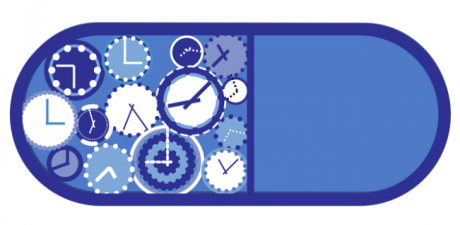Goal Setting and Time Management Tips for A-Grade Students!

Goal setting and time management are crucial life skills that you will need long after you pass out from school, i.e., forever. So it’s never too early to start learning and practicing these skills!
What is a SMART goal?
A SMART goal is a goal that is:
- Specific: Specific goals for school students might include studying for a test, getting a certain grade in a class, or participating in an extracurricular activity.
- Measurable: As a student, you can make your goal measurable by setting a specific target, such as studying for two hours every day, getting a 95% on your next math test, or scoring the winning goal in the next soccer game.
- Achievable: An achievable goal is realistic given your current circumstances. You might set a goal to get 95% in your next math test but if you have been averaging 50% all term, this might not be achievable.
- Relevant: A relevant goal is important to you and aligns with your long-term goals. For example, if your goal is to get a job in the medical field, then getting good grades in biology and chemistry would be relevant.
- Time-bound: A time-bound goal has a deadline attached to it. This might be studying for two hours every day for the next week, or getting a 95% on your next math test within two weeks.
In short, a SMART goal is a well-defined goal that you can actually accomplish.
Define stepping stones to achieve your main goal
Break your main goal into smaller goals that can serve as your stepping stones. For example, if you want to become a doctor, your stepping stones might be getting good grades in high school, getting into a good college, and then completing medical school.
- Divide your goals into manageable chunks. Instead of setting one big goal, such as “get an A in math,” break it down into smaller goals that you can complete each day or week. For example, your goal might be to study math for two hours every day or to get a certain grade on your next math test.
- Focus on the performance, not the outcome, not the perfection. A goal such as “perform to the best of my abilities” can be achieved regardless of the final outcome. Progress, not perfection, should be your mantra if you want to succeed in any sphere of your life.
How many goals should you work on at once?

You can work on multiple goals at the same time, but it is important to prioritize your goals. Start by identifying your main goal, and then focus on the smaller goals that will help you achieve it.
We advise you to pick up work on not more than 3-4 goals at a time. One can be related to your studies, one related to your health, and perhaps, one related to your hobby. Diversifying your goals will help you not feel bogged down by any one of them.
How to make an action plan?
Use the Rapid Planning Method (RPM) introduced by Tony Robbins to generate a quick, action plan. It boils down to three steps:
- What is it you want? It seems like a no-brainer but very few students take the time to know themselves and reflect on what they want to achieve. They study aimlessly and reach nowhere. A-grade students, on the other hand, know exactly what they want.
- Know why you want it. This is what will sustain you when the going gets tough. Lack of motivation is one of the biggest problems school students face. When you know what your purpose is, it becomes much easier to stay motivated.
When you have a powerful enough reason, no force on earth can stop you from achieving your goal.
- List the steps to fulfil your goal. If you want to improve your grammar, you will have to learn the rules, practise writing, and get feedback. If your goal is to get an A in Math, you will have to make sure you finish the syllabus in time, do your practice exercises, do mock tests, and attend extra classes if needed.
With an action plan in hand, you can now create a timeline for your goal. This will help you to better manage your time and stay on track.
Pay attention to the 80/20 rule
The Pareto principle, or the 80/20 rule, suggests that 80% of results come from 20% of actions. In terms of time management, this means that you should focus on the most important tasks, and not waste time on activities that don’t contribute to your goals.
Identifying where you are being productive and where you are wasting time can be difficult. A good way to do this is to keep a time log for a week. At the end of the week, analyze your activities and see where you can make changes.
Create Time Capsules for yourself

Many times, you have to deal with things you did not plan for earlier. At times, you are too stressed to do a complex assignment or too exhausted to study anything. Hence, you need to divide your day into four parts:
- Time Capsule 1 can be set for 5-6 hours when you work on your goals with full focus and concentration. This is the time when you work on your action plan and get most of your work done.
- Time Capsule 2 can be set for 2 hours to handle things you haven’t planned for – an unexpected assignment, a family emergency, etc. With extra time allotted for unplanned emergencies, you won’t feel as stressed when they happen.
- Time Capsule 3 can be set for 1 hour to destress yourself. You can watch your favourite show, take a walk, or meditate. Some other de-stressing techniques CrunchGrade tutors often recommend include practising mindfulness, deep breathing, and progressive muscle relaxation. Listening to music or playing with your dog also works for some people!
- Time Capsule 4 can be set for 30 minutes to review your day and plan for the next day. This is an ideal thing to do when you are tired and ready to sleep. You can also take a capsule during the day after a long and exhausting day at school and take a quick nap to rejuvenate yourself.
Remember these tips and tricks, and you will be on your way to becoming an A-grade student in no time!
Find best tutors from all across the Australia – Sydney, Melbourne, Adelaide, Perth, Newcastle, Goldcoast, Canberra, Brisbane.
To make it easier for you to decide, your first session is completely FREE!
Select and book a tutor for Math, Science, English and all the other subjects.
